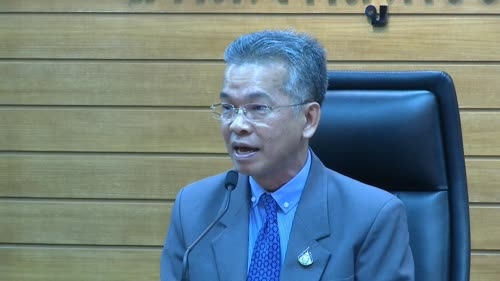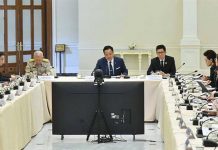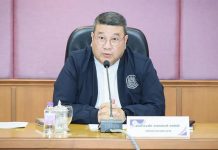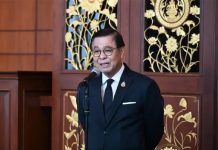
The Office of the Ombudsman has resolved to forward a petition on Prime Minister Gen Prayut Chan-o-cha’s oath-taking shortfall to the Constitutional Court for judgment.
Ombudsman’s Office Secretary General, Raksakecha Chaechai said today the agency has resolved to forward the petition lodged by Ramkhamhaeng University student Phanuphong Churak against the prime minister and cabinet ministers, to the Constitutional Court. The prime minister allegedly failed to read out the entire wording of the oath as stipulated under Section 161 of the constitution and thus such a shortfall has been alleged to be unconstitutional.
The Office of the Ombudsman considered the matter in accordance with the constitution though the prime minister may have followed all relevant protocols pertaining to the oath-taking ceremony before His Majesty the King. Such a shortfall in the oath-taking ritual might possibly be considered unconstitutional as alleged, thus rendering the performances of the prime minister and cabinet ministers illegitimate. Besides, the petitioner’s rights and freedoms, albeit provided by the constitution, may have been practically violated. The Constitutional Court has the authority to rule whether the prime minister and cabinet ministers should have their duties suspended or not.
Meanwhile, similar petitions filed by Srisuwan Janya, the secretary general of the Association for the Protection of the Thai Constitution, and Aiya Phetthong, the secretary general of the Organization for the Protection of Buddhism for Peace, cite other sections of the constitution, which were found not to have been violated as charged, and were therefore dropped by the Office of the Ombudsman.
In addition, the Office of the Ombudsman dismissed a petition lodged by Thai Liberal Party Leader Pol Gen Seripisut Temiyavej, alleging that House Speaker Chuan Leekpai’s handling of a joint House/Senate meeting to select the prime minister on June 5, 2019, occurred in an unconstitutional fashion. The Office of the Ombudsman concluded that the House speaker handled the joint meeting appropriately under Section 159 of the constitution and that the petitioner’s rights and freedom had not been violated.




